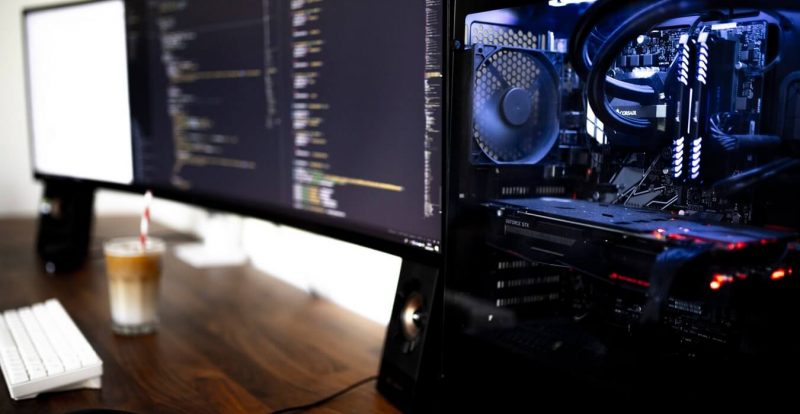Since the beginning of starting Rocketloop, our co-founder and CTO Florian has always spent most of his time throughout the year in the USA and we also hired our first employee from Ukraine. Remote work and home office were, therefore, an important part of our corporate culture from day one.
Over the past four years, we have learned how to optimize collaboration across continents, time zones, and languages. In this blog post, we have summarized our most important experiences.
In the first weeks in February, when there were only two-digit case numbers of the coronavirus in Germany, we decided to work exclusively from the home office for the time being. The fact that we were able to make this decision so early on is primarily due to the fact that this type of work is already part of our everyday life: almost all of our employees regularly work from home or on the road without this having a negative impact on our speed or quality.
The Most Important Tools for Remote Work –
Communication is Everything!
1. English Please! We use English for all documentation, internal communication, and documentation of code. Even though we see each other in everyday life, we speak English most of the time. The big advantage: German language skills have never been a hiring criterion for us.
2. What is Written, Stays. Everybody knows this: there are always processes that have to be explained again and again because they have never been documented and standardized. We collect and document all processes, best practices, and guidelines for the daily work in Confluence. The advantage: everyone is at the same level and we force ourselves to think through processes well and to adapt them regularly.
3. Focus, Focus, Focus! We exclusively use the chat platform Slack for our communication. This cost us a lot of valuable time in the beginning because we were constantly distracted by notifications. Today, notifications are deactivated and direct addresses @colleagues are only used when something is really urgent.
4. What is up with You? What are we currently working on? Has anyone ever had this problem before? Do you need any help? These questions are quickly usually clarified in the office by talking face-to-face. We achieve the same effect through a series of “standup” meetings with different scopes:
- Daily: For each project, the project team holds a 5-10 minute call in the morning to clarify briefly what everyone is working on and where support may be needed.
- Sprint Review: Every two weeks the intermediate results of each project are discussed within the team and presented to the client.
5. Just Chatting! Besides our project-related calls and chats, we also create time for a relaxed exchange in two formats:
-Our Town Hall Meeting: Every two weeks we have a one-hour call-in where exciting projects are explained, new ideas are brought up, our learnings and our general goals through the week are presented and discussed together.
-Social Lunch Call: Every day from 12:00-13:00, we hold an open, voluntary call where everyone can, but does not have to, join us during the lunch break. There is no agenda and it is usually not about work, we just chat as if we were sitting together for lunch.
6. Have Fun with it! We’re nerds and we’re proud of it! When we see each other in the office every day, we like to play a round of Mario Kart or Smash Bros. together at lunch or in the evening. But remotely? After work, we like to play a round of Quake 3 Arena or Counter-Strike. Important is that a voice call is running parallel because gaming without swearing is only half the fun! 😉
Corona?
Stay the F*ck Home!

We see the outbreak of the Coronavirus (COVID-19) as a major threat to our society as a whole. The best chance to prevent a rapid spread is simply to stay at home and thus minimize the risk of infection. Florian has started the “Stay the F*ck Home” movement, which we fully support.





